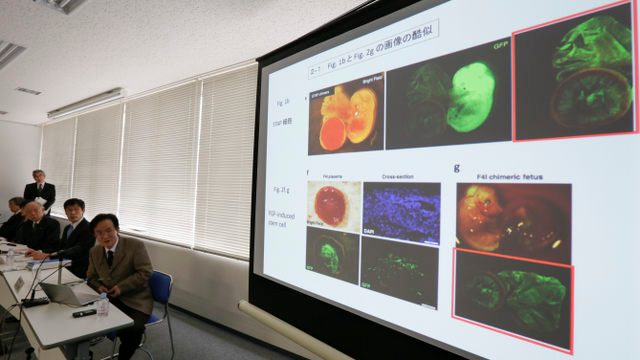SUMMARY
This is AI generated summarization, which may have errors. For context, always refer to the full article.

TOKYO, Japan – Some of Japan’s top scientists have been unable to reproduce results of what was once billed as a ground-breaking stem cell study, but which spiraled into a scandal that included a respected researcher’s suicide, reports said Thursday, December 18.
The government-backed Riken Institute will announce Friday, December 17, that so-called “STAP” cells cannot be reproduced, writing the embarrassing final chapter of a study published in the journal Nature but later withdrawn, according to national broadcaster NHK.
“Cells with pluripotency could not be created under the method spelled out in the study,” NHK said, citing unnamed sources.
Riken in January trumpeted how Haruko Obokata, now 31, had devised a simple method to re-program adult cells to work like stem cells – the precursors that are capable of developing into any other cell in the human body.
The study was top news in Japan, where the photogenic Obokata, a Harvard-trained scientist, became a phenomenon.
But media attention soon grew into skepticism as doubts emerged about Obokata’s papers on Stimulus-Triggered Acquisition of Pluripotency (STAP).
Mistakes were discovered in some data published in two papers, photograph captions were found to be misleading, and the work itself could not be repeated by other scientists.
Obokata, who asserted that she created STAP cells some 200 times, since July has been trying in tandem with independent teams to reproduce her own results.
She claimed there was a secret knack for creating STAP cells, but has refused to publicize it, asserting it is a subject of her future papers.
Leading science journal Nature withdrew the flawed study after Obokata agreed in June to retract the papers.
As the scandal deepened, Obokata’s mentor and co-author, stem cell scientist Yoshiki Sasai, hanged himself, further shaking Japan’s scientific establishment.
Riken has pledged to restructure its Center for Developmental Biology where the scandal took place. – Rappler.com
Add a comment
How does this make you feel?
There are no comments yet. Add your comment to start the conversation.